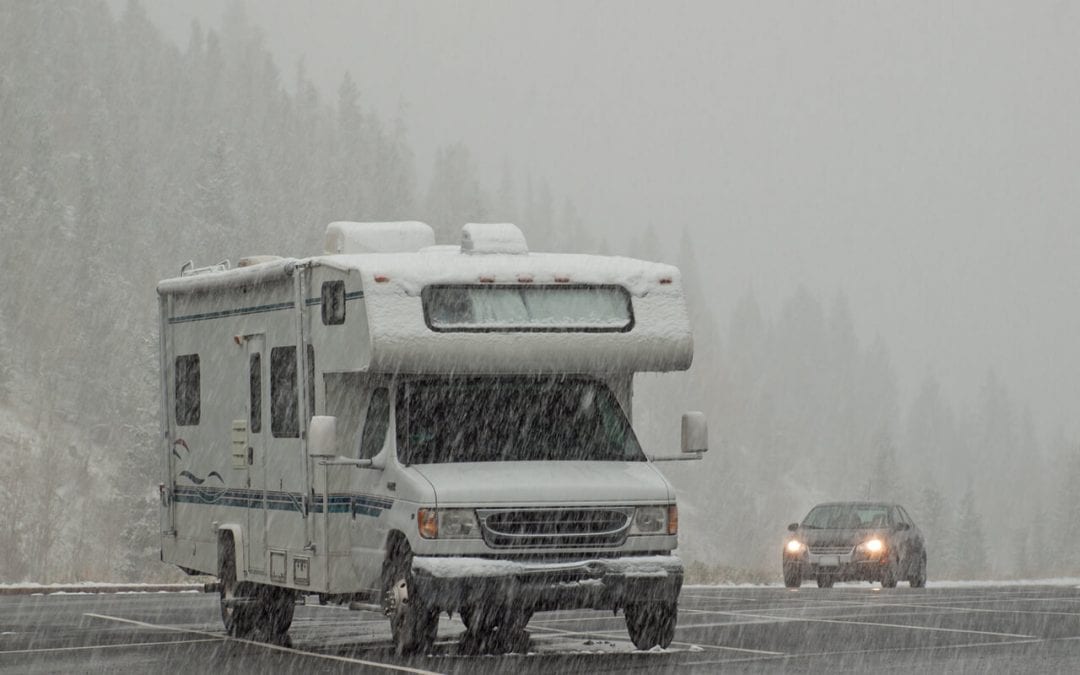RV Winterization Tips for Better Maintenance
Properly winterizing your RV if you won’t be using it for a few months is important for the continued maintenance of your vehicle. Below are some great RV winterization tips to make sure your next road trip isn’t slowed down by repairs and other hassles.
1. Sanitize Your Fresh Water Tank
There are many options for cleaning your freshwater tank. However, since you may be drinking out of it next summer, it’s important to use the right product for this job. Invest in Fresh Water Tank Sanitizer and follow the instructions to get everything spotless before winter hits.
2. Clean Your Drain Lines
How does cold damage an RV? Frozen pipes can often mean burst pipes. To avoid spending your summer months chasing leaks, you’ll want to blow out the water lines once you’ve cleaned your freshwater tank.
3. Clean Your Gray and Black Water Tanks
Frozen wastewater can also cause a lot of damage, so be prepared to thoroughly clean these tanks. It’s best to choose a day you’re going on a long road trip to allow the movement of your RV to slosh the water around. Your gray water tanks should clean fairly easily using only automatic dishwashing detergent gel and water.
However, the black water tank may require the addition of a specially formulated cleaner to remove any caked on waste. If you have to use a special cleaning product, add the required amount of water to the tank and drive for a bit. Some RVer’s recommend adding ice to the black water tank as an abrasive.
Again, drain the black water tank and flush. Once both of these tanks are clean, add antifreeze to your holding tanks to protect them further.
4. Keep The Humidity Down
Invest in dehumidifying crystals to keep the air in your RV dry over the winter. This will reduce the risk of mold and keep the RV smelling fresher for when you de-winterize.
Some of the most important RV winterization tips to follow are made easier by putting all your winterization supplies in one container. Invest in a sealed container for your dehumidifier crystals. Get a tub that will hold the crystals and the tank cleaners so you can get to it easily.
5. Cover It
If you don’t have a covered RV storage shed, it’s a good idea to invest in an RV cover. Cover and tie down the cover securely to keep your RV protected from wind and precipitation.
6. Keep Out Critters
The first step to avoiding mice and other unwelcome pests in your RV is to deny them access. Check all the entry points into the main area of your camper and seal them as best you can with spray foam or fine steel wool as needed.
Also, a simple RV winterization tip is to make the place inhospitable. Remove cushions that could turn into rodent homes. Once the soft items are out, place mothballs around your RV. Larger pests such as squirrels and raccoons find the smell of ammonia off-putting, so pour some of that into a bowl and place it under cabinets and inside cupboards. You may need to refresh these bowls depending on how long your winter is and how determined the pests are.
RV Onsite Services provides RV inspection and repair services to the Greater Raleigh area. Contact us to schedule our services.

